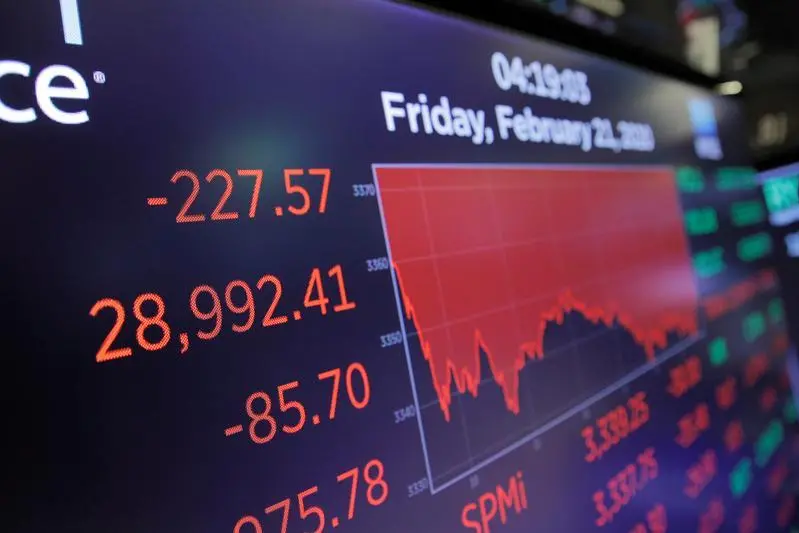PHOTO
NEW YORK - First came trade war, now a rapidly spreading global virus. It’s the latter that has investors more nervous. Monday saw the S&P 500 Index fall over 3%, while Treasury yields hit a record low. The anxiety is overdue, because the potential impact of the disease known as Covid-19 is serious business.
Protectionism hurts economies, but gradually, mostly affecting prices and demand rather than availability. Yet closures in Chinese factories, and production squeezes caused by rural workers staying away, hit hard and fast. The People’s Republic is the world’s biggest goods exporter, accounting for 13% of global merchandise exports according to the World Trade Organization. It produces over 25% of computing and electrical exports McKinsey Global Institute estimates.
Apple has already warned of the risk of iPhone shortages. But there are more essential products to think of. China only accounts for 4% of global pharmaceutical exports, for example, but it’s the biggest producer of many cheap drugs – about 80% of U.S. antibiotics come from China – and the sole provider of chemicals needed to make others.
The auto trade in particular depends on a steady supply of items. Cars have tens of thousands of parts, and some have no easy substitutes. Fiat Chrysler and Hyundai Motor have idled plants in Serbia and South Korea over missing Chinese parts, and other manufacturers have said they are down to a few weeks of supplies. China’s 3% of global car exports doesn’t give the full picture of how integrated the system is.
The S&P 500 is up by around 15% since President Donald Trump started imposing tariffs on America’s trade partners in early 2018. Even with Monday’s fall, the S&P 500 is down about 1% since the start of the year – about the time first reports of a new disease in China emerged. Yet clusters of Covid-19 emerging in South Korea, Japan and Italy raise the risk that exports from these nations could also become scarce – leading to a compounding of supply chain problems.
Supply chains are only as strong as their weakest link, and a whole lot more stress is probably coming. Markets haven’t yet grasped how big this problem could be, but they are finally waking up to the fact that it is one.
CONTEXT NEWS
- The S&P 500 Index fell as much as 3.7% on Feb. 24 after the number of coronavirus cases rose sharply in Italy, Iran and South Korea.
- In the U.S. Treasury market, the yield on the 30-year bond – which can be viewed as a proxy for growth expectations – fell to a record low of around 1.81%.
- The World Health Organization said, based on data from Feb. 23, there have been over 78,000 confirmed cases of Covid-19, the disease caused by the new coronavirus.
(Editing by John Foley and Amanda Gomez)
© Reuters News 2020




















